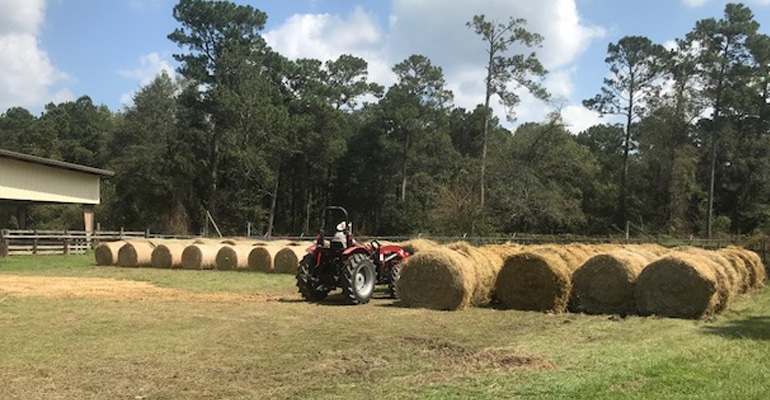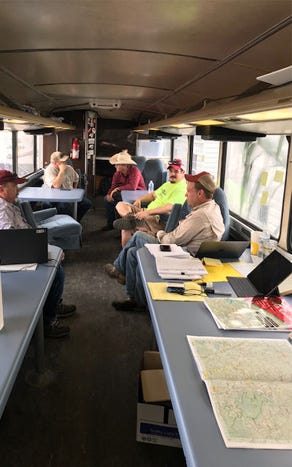September 28, 2018

The Texas A&M AgriLife Extension Service has deployed the first of two animal strike response teams to North Carolina to provide assistance with Hurricane Florence recovery efforts.
“Having gone through such a disaster last year here in Texas resulting from Hurricane Harvey, those recovery efforts are still fresh on our minds,” said Dr. Parr Rosson, AgriLife Extension interim director. “This will allow us to provide some helpful guidance in assisting livestock owners with feed and recovery efforts from catastrophic flooding and other effects of the storm. Our thoughts and prayers continue to be with everyone affected by this hurricane.”
Last year, AgriLife Extension staged strike teams at various animal supply points around South Texas along the path of Hurricane Harvey. These supply points served as staging areas to receive hay and feed donated by farmers and ranchers throughout Texas as well industry and commodity association partners. Hay and feed donations were valued at $1.3 million.

The Texas A&M AgriLife Extension Service has deployed the first of two animal strike response teams to North Carolina to provide assistance with Hurricane Florence recovery efforts. Strike teams are deployed to various animal supply points to provide logistics, manage distribution of feed and supplies to livestock owners affected by the storm.
Todd Swift, AgriLife Extension state program leader for agriculture and natural resources from Uvalde, said strike team members and representatives with North Carolina Extension Service were busily coordinating activities in Sampson County, south of Raleigh, North Carolina.
Swift said some 200 round bales of hay and 150 square bales had been received at the Sampson County location, and more were coming in.
“We visited a farm to hear about the challenges the crops farming community was having,” he said. “We were hearing some of the tobacco curing barns were full and operating, but a loss of power for any length of time meant a complete loss of the tobacco crop.”
Swift said at the Sullivan family farm, tobacco harvest just finished the day before the storm made landfall.
“Jay Sullivan said he counted himself very lucky that they were able to finish the harvest and did not lose power in the barns or they would have unloaded barns full of black tobacco leaves that would be worthless and dumped in the woods,” he said. “Others were not so lucky as we observed numerous tobacco fields that were an unharvested loss.”
At the Pink Hill supply point in Lenoir County, Deral and Emma Grace Raynor, 12-year-old twin 4-H members, were operating a forklift assisting with unloading many feed supplies that had been donated.
“When I asked him why he was here working, Deral said ‘I just want to help people that need help anyway I can,’” Swift said. “With the schools being closed, the twins said they were there and available to help.”
The supply point has received 60 round bales, 40 square bales, 400 small square bales and 20 tons of feed. A supply point in Wallace County was also receiving resources.
Swift said many of the farms were large-scale poultry or swine integrated operations and may have lost everything.
“Some of the small livestock farms, at least while we were there, had lost hay supplies but not a lot of animals were displaced or hungry,” Swift said. “These animals were able to find higher ground and seemed to be doing well. Some hay drops had been made to animals on islands.”
As the waters recede, more livestock owners will access their acreage and “find out what they are dealing with,” Swift said.
Monty Dozier, AgriLife Extension special assistant who has led Texas rebuilding efforts following Hurricane Harvey, said flood waters have begun to recede in counties north and east of where Hurricane Florence made landfall.
“North Carolina Extension is responding by establishing additional animal supply points including ones at Castle Hayne, Kelly and Burgaw that AgriLife Extension agents are supporting this week,” he said.
About the Author(s)
You May Also Like




